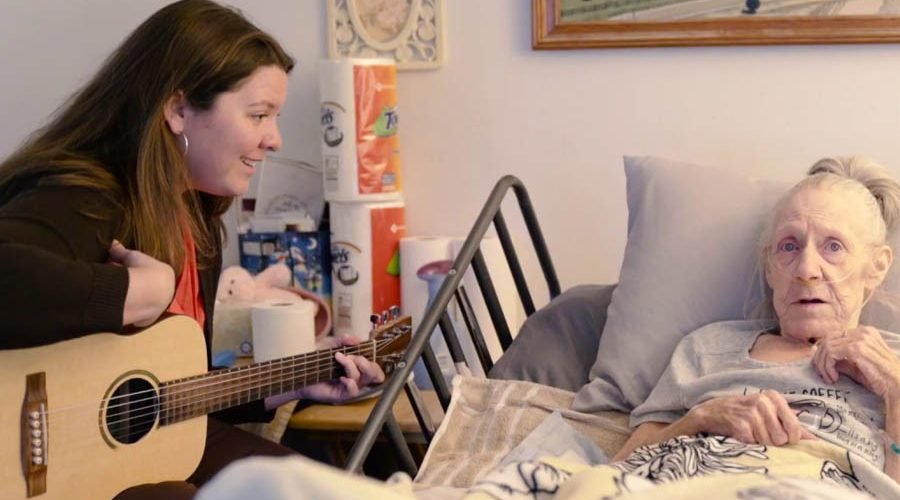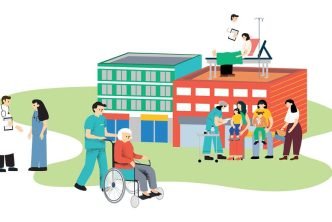Music can soothe, energize, and connect us with feelings and emotions. In hospice care settings, where patients are in their final stages of life, music therapy can bring comfort, joy, and support to the patient and their families and caretakers. In recent years, music therapy has grown in popularity as a way to relieve symptoms and improve the quality of life for those at the end of their journey. This blog explores the benefits of music therapy in hospice care settings and how it can help ease physical, emotional, and psychological pain. We’ll also look into outsourced hospice billing RCM (revenue cycle management).
Table of Contents
1. Decreases Pain & Anxiety
Music has been known to stimulate the production of endorphins that help reduce pain and anxiety. In hospice settings, pain management is a critical aspect of care. Music therapy can be used to complement traditional medications for pain through its ability to distract patients from their pain. Music therapists use soft and soothing tunes to assist in relaxation, breathing exercises, and mindfulness practices. This type of music therapy increases relaxation and helps to reduce anxiety levels, making patients more comfortable during their final days.
2. Promotes Positive Memories & Experiences
Music is associated with memories and emotions; this is why a particular song can elicit a specific feeling or create a sense of nostalgia. In hospice settings, music therapists use patients’ favorite songs to evoke memories and positive emotions, creating a sense of happiness and comfort. This memory and experience can positively impact patients, their families, and caretakers, making dealing with the challenging end-of-life journey easier.
3. Support Transitions
The power of music therapy can reflect the patient’s personal and spiritual beliefs, reflecting individuality and providing a sense of dignity during the transitions of life. Music therapy sessions can help patients transition through their experiences by incorporating music that reflects where they are with their experience. Music therapists use different techniques to introduce music to patients, encouraging them to spend time listening and reflecting while enjoying the harmony and rhythm of the music.
4. Improve Communication
Those in hospice care can experience communication difficulties related to illness or end-of-life issues. Music therapy sessions can help patients communicate their feelings and emotions using musical instruments or voices. Music can help break down communication barriers by providing a comforting, peaceful environment that supports shared experiences between patients, families, and medical professionals.
5. Improves Quality Of Life
Patients in hospice care experience physical, emotional, and psychological changes that can reduce their quality of life. Music therapy can assist in relieving symptoms such as pain, anxiety, or depression and boost feelings of joy, connectedness, or hope. These positive experiences can help bring peace and comfort to patients, their families, and caretakers, making the hospice care journey more fulfilling and healing.
Outsourced Hospice Billing RCM
Outsourcing hospice billing RCM (revenue cycle management) can be an innovative and strategic decision for hospice providers. With this process, hospice providers can concentrate on their core business activities, such as providing quality patient care, while leaving the billing process to highly skilled RCM professionals.
Outsourced hospice billing RCM ensures timely claim submissions and enhances revenue cycle management, resulting in an optimum cash flow. Hospice providers can benefit from reduced operational costs, eliminating the need for staff training and alleviating overhead expenses.
At the same time, they can rest assured that the compliance regulations are well-met and a consistent cash flow is maintained. Outsourcing hospice billing RCM can streamline the process and help hospice providers achieve an effective and efficient billing cycle.
Conclusion
Music therapy provides unique therapeutic benefits that can help support patients’ journeys in hospice care settings. The power of music therapy can promote feelings of happiness and peace, relieve pain and anxiety, evoke positive memories, and support communication and transitions, creating an environment that honors the individual’s dignity, purpose, and life experiences. Hospice care settings are beginning to implement music therapy as a complementary approach to traditional treatments to provide a more holistic and healing approach to care. The use of music therapy in hospice care settings, therefore, represents a way to boost the quality of life of those most in need while also providing a sense of peace, comfort, and support to their families and caregivers.





